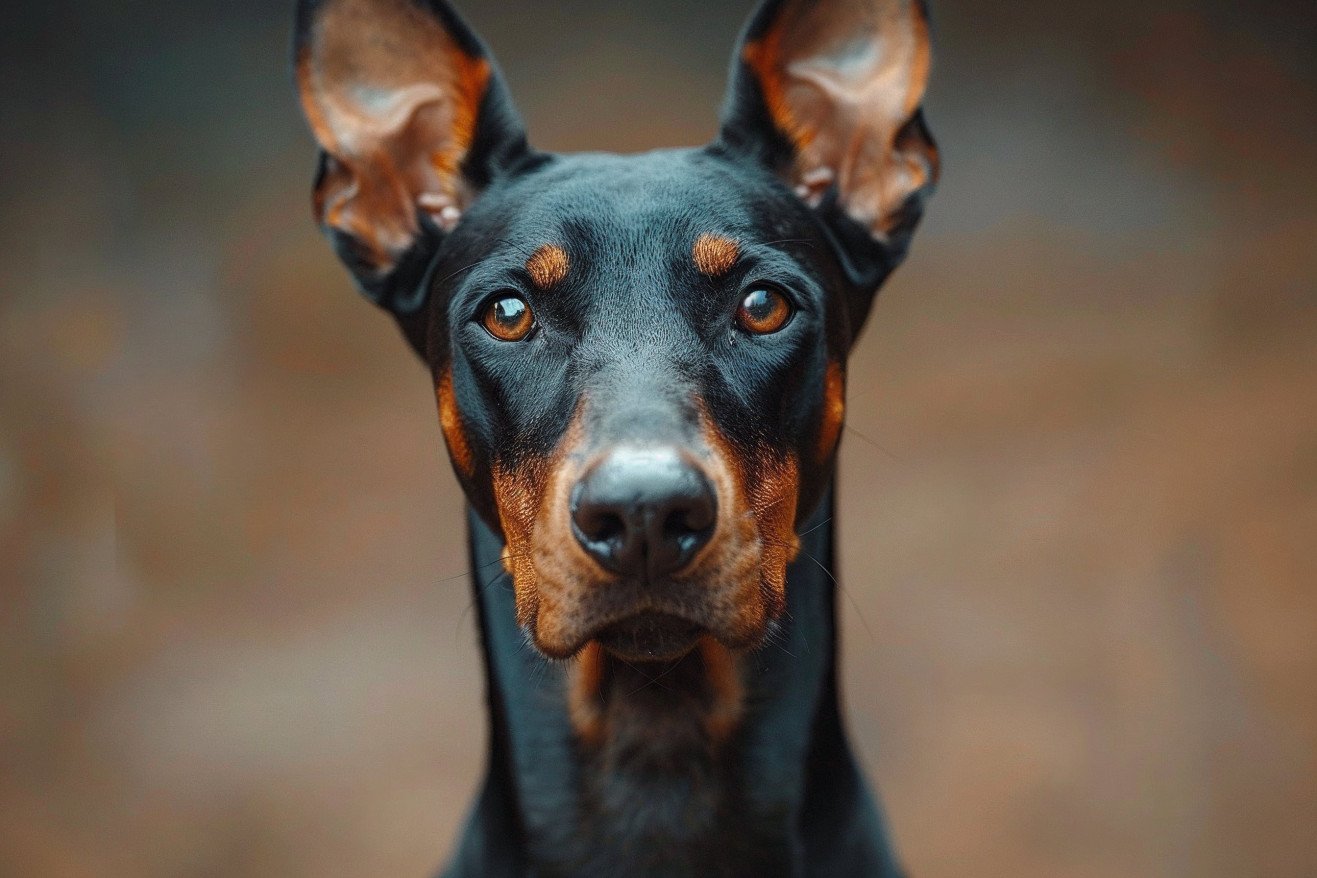Do Dobermans Cause Allergies? The Truth About Allergies
5 June 2024 • Updated 5 June 2024

Dobermans are often recognized for their shiny, muscular bodies, but if you're someone with allergies who's looking for a hypoallergenic dog, are these strong dogs the right choice? Unfortunately, Dobermans are not hypoallergenic dogs. They have a short, coarse coat that they shed at a moderate rate all year long. Their dander and saliva can cause allergies in people who are sensitive to pet allergens.
In this article, we'll look at the most recent veterinary studies and breed information about Dobermans to answer the question of whether or not Dobermans are hypoallergenic. We'll also look at reputable sources to find out why Dobermans can't be called hypoallergenic pets. By the end of this article, you'll have reviewed the current scientific evidence and be able to determine if a Doberman pinscher is a good pet choice for someone who has dog allergies.
Are Dobermans hypoallergenic?
What Is a Hypoallergenic Dog Breed: Fact or Fiction?
No dog breed is completely hypoallergenic, and all dogs produce some level of allergens. In fact, as Scientific American notes, "There is no such thing as a hypoallergenic cat or dog." The idea of hypoallergenic dogs is based on the theory that some breeds are less allergenic than others due to their coat type and shedding frequency. However, allergens like dander, saliva, and urine can still cause allergic reactions regardless of a dog's hair length or texture.
Even though no breed can be guaranteed to be non-allergenic, some are generally known to be better for people with allergies. For example, VCA Animal Hospitals explains, "Even though there is no canine breed that is 100% hypoallergenic, there are breeds that are less likely to stimulate allergies in people." And, as Everlywell points out, "Some dog breeds can produce fewer allergens than others, which may reduce the chance and severity of allergic reactions."
That said, people's reactions to different breeds can vary widely. As VCA Animal Hospitals says, "How hypoallergenic a dog is may depend on the individual dog and person." Some people may be more sensitive to certain breeds or even certain dogs within a breed. While breed lists can be helpful, it's best to spend time with a specific dog before bringing it into your home. With that said, some people with allergies may be able to tolerate dogs that are generally considered less allergenic with the right precautions.
Things That Impact a Dog Breed's Allergen Levels
The biggest thing that impacts a dog breed's allergen levels is the amount of dander the breed produces. According to BARK, breeds with coats that shed less, like those with hair instead of fur, produce less dander. The amount of saliva a dog produces and how much they bring in outdoor allergens can also affect their allergen levels.
That said, it can be hard to generalize about a breed's allergen levels because, as Nationwide Children's Hospital explains, dogs within the same breed can produce different amounts of allergens. However, regardless of breed, allergen levels can be managed through grooming, including regular brushing and bathing, according to the American Kennel Club.
Breeds That Are Often Recommended for People With Allergies
While no dog is completely hypoallergenic, there are certain breeds that are generally better for people with allergies. Breeds like Poodles, Schnauzers, and Terriers are often recommended because they don't shed and produce less dander, according to the American Kennel Club. Other breeds that are often recommended include the Bichon Frise, Maltese, Portuguese Water Dog, and some hypoallergenic mixes like the Labradoodle and Cockapoo, according to The Spruce Pets.
These breeds and mixes have specific coat textures and grooming needs that can help keep allergen levels low. That said, everyone's reaction to dogs is different, and it's always best to spend time with a dog before bringing it home, according to the American Kennel Club.
Coping With Allergies When You Have a Doberman Pinscher or Other Non-Hypoallergenic Dog
Although Dobermans are not hypoallergenic, there are ways for people with allergies to minimize their exposure to allergens. According to the Humane Society of the United States, creating an "allergy free" zone in the home, such as the bedroom, can help lower allergen levels. Regular grooming, bathing, and vacuuming can also help remove dander and other allergens from the environment, as explained by Oransi.
Air purifiers that use HEPA filters can help to capture airborne allergens and improve indoor air quality, which WebMD says is a good way to manage dog allergies. Working with an allergist or a vet can help you come up with a plan for managing your allergies that may include medications, as noted by WebMD.
Other Hypoallergenic Dogs Similar to the Doberman Pinscher
If you're looking for a dog that's similar to a Doberman but has fewer allergens, there are a few other options to consider. According to Good Housekeeping, the Giant Schnauzer and Airedale Terrier are similar in size and temperament to the Doberman but are more hypoallergenic. There are also some hypoallergenic mixes, like the Doberman Pinscher-Poodle mix, that may be suitable for people with allergies, according to the Cleveland Clinic.
No matter what breed you're considering, it's important to spend time with the dog you're thinking about adopting to see how you react to them, says the American Kennel Club. A reputable breeder or rescue group can also help you determine which hypoallergenic dog or mix is right for you, according to information from ManyPets. With the right preparation and information, people with allergies should be able to find a dog that's a good match and has the same qualities that make the Doberman a great pet.
Conclusion: How to Choose the Right Pet for Your Allergies
Although Dobermans are not hypoallergenic dogs, there are ways for people with allergies to manage their symptoms. People with more severe allergies may find that choosing a dog from a breed that is known to produce fewer allergens, like Poodles or Schnauzers, is a better option. However, it's important to work with medical professionals and spend time with specific dogs to determine how you'll react and find the right pet.
With the right precautions and management techniques in place, some people with allergies may be able to have a Doberman or another non-hypoallergenic dog. However, it's important to balance personal preferences with the need to manage allergies and the desire to create a healthy living space.


